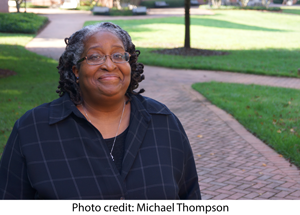
Race--Not Just a Hot Topic
Why does an African American woman--a Womanist black liberationist religious ethicist-- in her right mind teach for twenty-three years in a historically white seminary in the South? I have asked myself this question many, many times, and most of those times in prayer on my knees to a God that I am sure is the “one that I have found in myself” and love fiercely (re: Ntozake Shange). There you have the answer: there is this call to teach that is the “fire in my bones” to live my politics inseparably from my theo-ethics. And, teaching is political and that’s why race matters in the classroom.
In the classroom, race matters, gender matters, economic status matters, physical ability matters, mental health matters,--in a word, the whole person and the whole body of learners in their particular and diverse embodiment matter. Yes, I do know that this is a blog about why race matters in the classroom. However, as a Womanist I would be remiss if I do not keep before us the contextual interactive nature of how race matters.
Race matters because the politics of race is a politics of denial. A politics of denial says that race does not matter because the social mythology of race describes the world as a place where race is incidental to what makes us human and prescribes that if you do acknowledge race, engage from a posture of colorblindness. This social mythology is part of our collective unconscious. An important task for teachers is to bring to consciousness the social myths into which we have been socialized through educational processes of home, church/religion, and schools. The social myths of race are adaptive such that even when we think that we are liberated from their power, we find ourselves teaching in ways that re-inscribe the myths. For example, if you are teaching about the recent events of racially-motivated violence as a hot topic during one class session rather than integrating such events into the teaching of the subject matter of your course, then you are making race incidental to how we interpret the discourses of religion and theology.
Finally, race matters because it is intrinsic to life, and we are teaching about life. We teach about living as individuals and communities through the lens of historical, ethical, theological, pastoral, religious studies. Furthermore, race presents itself frequently in the US context as a binary relationship, but we know that this is indeed another way that the social mythology of race sustains its power over us. Our task is to have multifocal lens so that we see our students in all of the particularity and diversity that they bring into the classroom. Again, race matters because gender matters, economic status matters, physical ability matters, mental health matters—the bodies and experiences of our students and ourselves as teachers matter.
So glad you have stayed at CTS all these years. Your presence makes CTS a better seminary and all of us who were fortunate to have you for ethics are better human beings for having sat with you in class! Many thanks and blessings upon you, Trisha